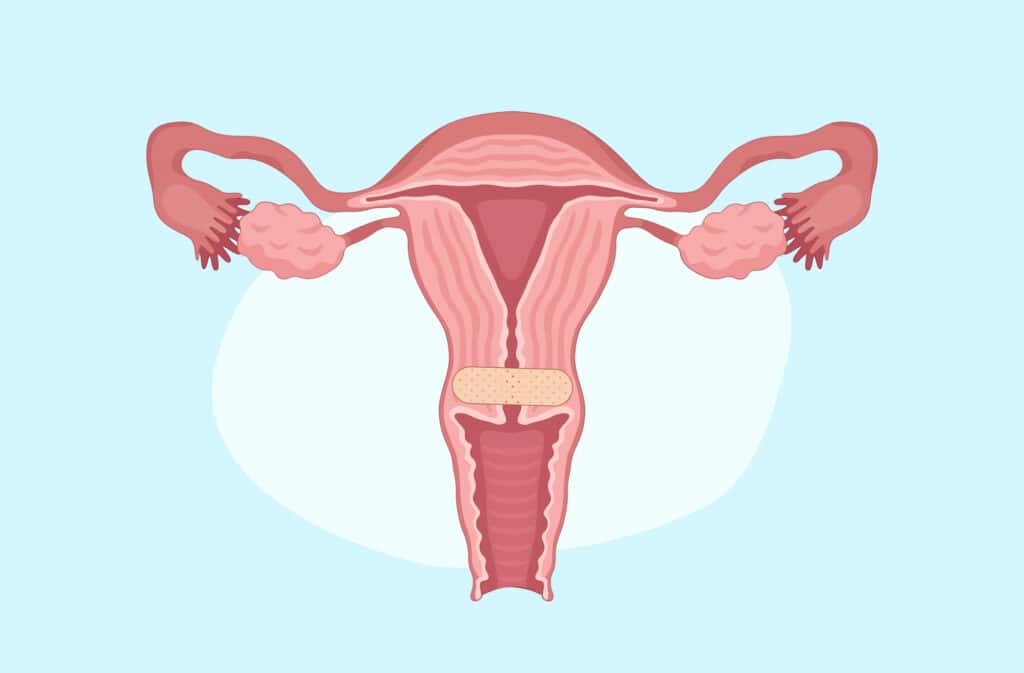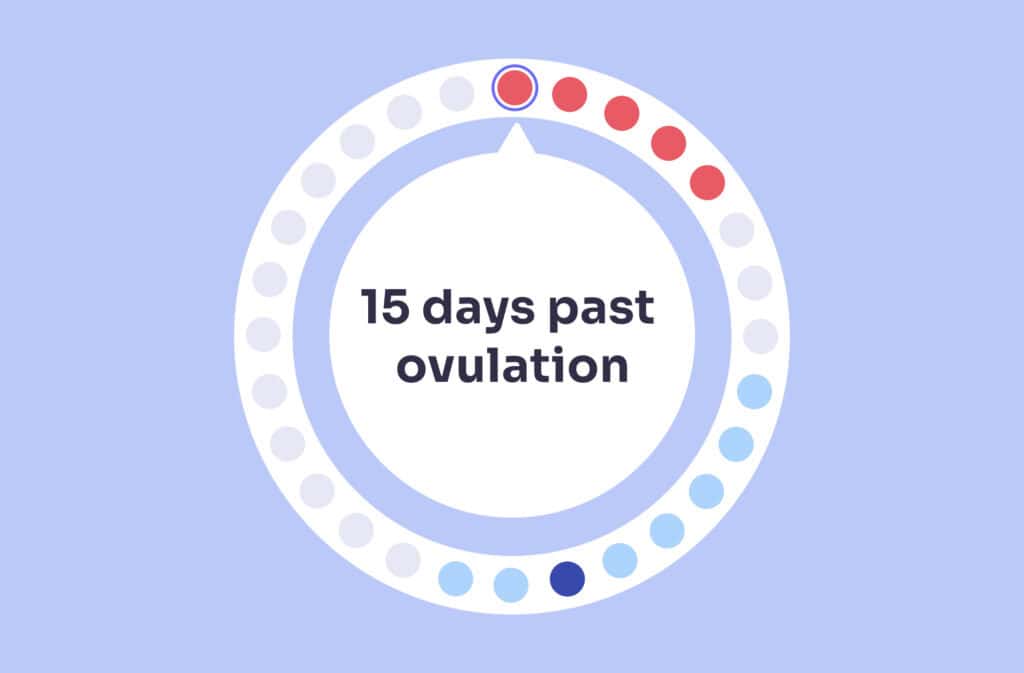Femia > Health Library > Your cycle > Health > Bruised cervix symptoms: Causes, signs, and when to seek help
Bruised cervix symptoms: Causes, signs, and when to seek help

- Updated Mar 2, 2025
- Published
CRAFTED BY HUMAN
Crafted by human At Femia, we provide accurate and up-to-date information at every stage of your journey, from trying to conceive, pregnancy and postnatal support. All content is created by a real person based on in-depth research and own professional experience. Femia ensures that you will receive expert advice, strict accuracy and a personalized approach from our authors/medical experts. Learn more about our editorial policy.
FACT CHECKED
Fact checked At Femia Health, we maintain the highest standards of editorial excellence in delivering content focused on helping you conceive, guiding you through pregnancy, and supporting you postpartum. Explore our content review principles to learn how we ensure the accuracy and quality of our health and lifestyle tips for every stage of your journey.
A bruised cervix most commonly occurs due to deep penetration during intercourse, improper insertion or removal of devices like an intrauterine device (IUD), or physical trauma to the pelvic area.
Bruised cervix symptoms include pain during or after sex, spotting, cramping, and pelvic discomfort. While your cervix will likely heal on its own with rest, make sure to seek medical care if you experience heavy bleeding, persistent pain, or signs of infection, such as fever or foul-smelling discharge. This is especially important if you are pregnant, as even light spotting should be investigated to keep you and your baby safe.
A bruised cervix, also known as a cervical contusion, is a medical condition that develops as a result of trauma or injury to the delicate tissue of the cervix.
How to tell if your cervix is bruised? Bruised cervix symptoms include pain or discomfort, spotting, and cramping. They can vary in intensity, from very mild to strong pain and heavy bleeding.
A bruised cervix is typically not a reason for concern, but recognizing the symptoms early is important to prevent potential complications, like infection. If pain or bleeding persists, set up an appointment with a trusted healthcare professional to get the right treatment on time.

What is a bruised cervix?
The cervix is the bottom end of your womb (uterus). It looks like a piece of soft, round tissue extending inside your vagina. The cervix serves as a protective gateway, playing an important role in pregnancy and menstruation.
Since cervical tissue is so delicate, forceful or repetitive contact during penetrative sex can lead to bruising and injury. Other causes of cervical bruising include the improper insertion or removal of medical devices, such as an IUD, which has to go through the cervical opening to reach the inside of the uterus. In some cases, giving birth can also cause cervical bruising. If your baby is large or the delivery is complicated, the sensitive cervical tissue might get injured.
Bruised cervix symptoms: What to expect?
How to tell if you’ve suffered an injury to your cervix? Here are the most common bruised cervix symptoms:
- Pelvic pain or discomfort. If your cervix is injured, you will most likely feel some discomfort in your pelvis (specifically, the vagina). Depending on the severity of the injury, you might feel actual pain.
- Bleeding. Another bruised cervix symptom is blood coming out of your vagina. The flow can be very light, also known as spotting, or heavier, similar to your period.
- Odd-looking discharge. Sometimes (although not very often), your vaginal discharge can also alert you that something is off. Check for any unusual discharge in terms of consistency, amount, or color; it can range from clear to bloody.
But, the guessing game does not stop there. The symptoms of a bruised cervix can be mistaken for other conditions, like vaginal infections or cervical inflammation, also known as cervicitis.
👉Find out more: Why does it burn after sex? Causes and solutions for discomfort
Bruised cervix symptoms: After sex
Since the cervix is fragile, intense and repetitive contact during penetrative sex can lead to bruising and injury. This is particularly likely during deep penetration, especially if the penis or dildo is large, or during fisting.
What are the bruised cervix symptoms after sex? Rough penetration can cause immediate pain or discomfort (during the intercourse, or right after). You might notice some spotting or heavier bleeding right after sex, as well.
When it comes to bruising due to vigorous sexual activity, timing is key to pinpoint the cause of your condition. If your cervix is bruised because of sex, you will likely know how the injury happened.
Bruised cervix symptoms: IUD-related
You can also get a bruised cervix when your IUD is placed or removed. This medical device, which helps to minimize the risk of an unwanted pregnancy, is inserted into the uterus, where it releases hormones or copper.
Although IUDs are a highly effective and safe method of contraception, the method of applying them is considered invasive. To be placed into your uterus, an IUD has to go through the cervical opening. Improper insertion or removal, performed by an inexperienced provider, can irritate or injure the cervical tissue.
IUD-related bruised cervix symptoms are not much different from those caused by bruising during sex. Most ladies report pain, spotting, bleeding, or changes in discharge.
Bruised cervix symptoms: Pregnancy-specific
During pregnancy, the cervix becomes more sensitive due to increased blood flow and hormonal fluctuations. These (completely normal) body changes may sometimes increase the risk of bruising during sexual activity or pelvic exams. Particularly by the end of pregnancy, as the cervix softens and prepares for childbirth, it can be more easily irritated.
Bruised cervix symptoms, pregnancy-specific, are always worth investigating. Some soon-to-be mamas experience spotting during pregnancy, and while light spotting is often harmless, it may also indicate a bruised cervix or another issue.
If you experience pain or cramping along with spotting or have heavy bleeding, it’s a good idea to talk with your healthcare provider as soon as possible. Early intervention can help rule out complications like infections or more serious conditions affecting the pregnancy.
Bruised cervix symptoms: Peeing problems?
A surprising example of the bruised cervix symptoms: peeing discomfort. What does an injury to your cervix have to do with itching or pain while peeing?
Well, a bruised cervix can be accompanied by swelling and inflammation, which may spread to the surrounding pelvic tissues. Pain may radiate to the bladder or urethra, causing a burning or pressure-like sensation. This is because the cervix, bladder, and urethra are all located close to each other, and any inflammation or swelling in the area can put pressure on the urinary tract.
If you experience discomfort while peeing for a prolonged time, make sure to consult with your healthcare provider. These symptoms can also be a sign of a urinary tract infection (UTI), which may require specific treatment.
Cervicitis vs bruised cervix: Understanding the difference
While both cervicitis and a bruised cervix can cause similar symptoms, such as pain, spotting, and discomfort, they have different underlying causes.
As we’ve already explained, a bruised cervix occurs as a result of physical trauma during sex or IUD insertion. The chances of your cervix getting bruised during sex are even higher during pregnancy.
On the other hand, cervicitis is a medical name for inflammation of the cervix caused by bacteria or viruses (i.e. conditions such as sexually transmitted infections or bacterial vaginosis). The key difference is that the cervix suffers no physical or mechanical trauma, but it still gets inflamed.
Sometimes, the cause of cervicitis can be non-infectious: chemicals (found in douches, contraceptive creams, or gels), latex condoms (in women who are allergic to latex), or objects (like diaphragms) that are left in the vagina for too long.
👉Find out more: Is it safe to have sex while on your period? Everything you need to know
Cervicitis - bruised cervix: Symptoms and treatment
In addition to pain, odd discharge, and bleeding, cervicitis often presents with inflammation-specific symptoms like high body temperature (fever), yellow or green puslike discharge (typical for inflammation), itching or burning, and redness of the vaginal area.
Sometimes, a simple blood test can help distinguish between a bruised cervix and cervicitis. Recognizing the difference is important for treatment. Cervicitis typically requires antibiotics or antiviral medications, whereas a bruised cervix may heal with time and rest, depending on the severity of the trauma.
| Bruised cervix | Cervicitis | |
|---|---|---|
| Cause | Physical or mechanical trauma | Viruses, bacteria, chemicals |
| Treatment | May not be needed—often resolves itself with time and rest | Typically requires antimicrobial therapeutics such as antibiotics or antiviral drugs |
| Pain | Yes | Yes |
| Discomfort: itching, burning | Yes | Yes |
| Spotting or bleeding | Yes | Yes |
| Fever | No | Yes |
| Discharge | Clear to bloody | Yellow to green, pus-like |
When to seek help for a bruised cervix
Symptoms of a bruised cervix may often go away on their own. But, here are the situations when it is important to seek medical care:
- If the pain or discomfort gets really bad
- If the pain or discomfort does not improve with rest
- If you notice heavy bleeding or you bleed for more than a few days
- If you notice any signs of infections, such as fever, foul-smelling vaginal discharge, unusual itching or burning, or generalized pain in the pelvic area
These symptoms may suggest complications like infection (e.g. cervicitis) or a more serious condition. If you seek medical attention early, you can get the proper treatment and prevent serious complications. It’s especially important to seek care during pregnancy, to rule out risks to both yourself and the baby.

Questions from the Femia community
How long will it take for my bruised cervix to heal?
Healing times vary depending on the severity of the injury. For a mild case, you will likely need a few days. More severe injuries might take more time to heal. Remember to rest, and avoid any activities that could make the trauma worse. If pain, discomfort, or spotting persists beyond the expected healing period, make sure to talk with your trusted healthcare provider.
Can my bruised cervix cause long-term issues?
Usually, there is no reason to worry. A bruised cervix typically goes away on its own and doesn’t cause any long-term issues. However, if your cervix gets bruised or infected over and over again, there might be some complications. Don’t panic, but still be mindful of your symptoms and seek medical attention when needed.
Can I still have sex with a bruised cervix?
We know that your desire for intimacy might still be strong even with a bruised cervix, but it is best to avoid intercourse until your symptoms resolve. Sex might cause further trauma and irritation, making the condition more serious and prolonging the healing time.
The bottom line
A bruised cervix can cause discomfort, but the good news is that it usually heals on its own with proper care, rest, and avoiding activities that may cause further injury. In most cases, symptoms improve within a few days to a week.
Still, it’s important to recognize symptoms early, especially if you’re pregnant or experiencing heavy bleeding. If symptoms like pain, spotting, or discomfort persist or worsen, or if you start to have a fever or abnormal discharge, it’s best to seek medical advice and run some tests to rule out more serious conditions.
References
- “Cervix.” NCI Dictionary of Cancer Terms, National Cancer Institute, 2 Feb. 2011, https://www.cancer.gov/publications/dictionaries/cancer-terms/def/cervix.
- Devine, Leanne. “Bruised Cervix: What Are the Causes?” Minton Morrill Solicitors, 25 Jan. 2024, https://www.mintonmorrill.co.uk/site/blog/clinical-negligence/understanding-a-bruised-cervix.
- “Hormonal Intrauterine Device (IUD) Insertion.” Nationwide Children’s, https://www.nationwidechildrens.org/family-resources-education/health-wellness-and-safety-resources/helping-hands/hormonal-intrauterine-device-insertion. Accessed 8 Oct. 2024.
- Iqbal, Uzma, and Christina Wills. “Cervicitis.” StatPearls, StatPearls Publishing, 2024, PubMed, http://www.ncbi.nlm.nih.gov/books/NBK562193/.

Learn how to put a pillow under your hips to get pregnant with our detailed guide, complete with images. Discover effective techniques to enhance your chances of conception.

TTC meaning, and what does BFP mean in pregnancy? Learn all about the DPO acronym, BFN meaning, and many other useful fertility acronyms you will likely come across.

Explore the symptoms at 15 days past ovulation (15 DPO), your body changes, and learn how to confirm your pregnancy with accurate testing. Expert advice from Femia.

